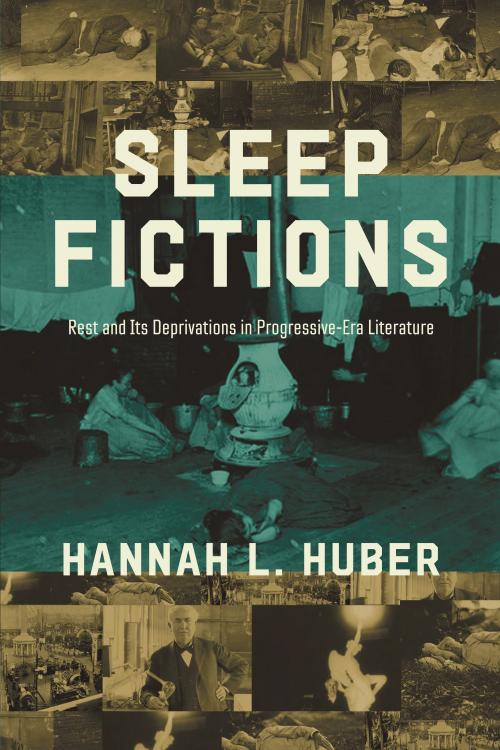
Sleep Fictions
Rest and Its Deprivations in Progressive-Era Literature
The literary response to the dawning cult of wakefulness
Cloth – $110
978-0-252-04540-0
Paper – $26
978-0-252-08752-3
eBook – $19.95
978-0-252-05500-3
Publication Date
Paperback: 11/21/2023
Cloth: 11/21/2023
Cloth: 11/21/2023
Series: Topics in the Digital Humanities
About the Book
A turn-of-the-century influx of new technologies and the enormous impact of the electric light transformed not only individual sleeping habits but also the ways American culture conceived and valued sleep. Hannah L. Huber analyzes the works of Henry James, Edith Wharton, Charles Chesnutt, and Charlotte Perkins Gilman to examine the literary response to the period’s obsession with wakefulness. As these writers blurred the separation of public and private space, their characters faced exhaustion in a modern world that permeated every moment of their lives with artificial light, traffic noise, and the social pressure to remain active at all hours. The implacable cultural clock and constant stress over physical limitations had an even greater impact on marginalized figures. Huber pays particular attention to how these writers rebutted Americans’ confidence in the body’s ability to conquer sleep with vivid portraits of the devastating consequences of sleep disruption and deprivation.The author also provides a website and text visualization tool that offers readers an interdisciplinary, deconstructed analysis of the book’s primary texts. The website can be found at sleepfictions.org.
About the Author
Hannah L. Huber is an adjunct professor of English and the Digital Technology Leader and Project Administrator for the Center for Southern Studies at The University of the South.Reviews
Blurbs
“An original and valuable contribution to contemporary debates about sleep and the values we attach to it in cultural contexts. There is a rewarding emphasis on the politics of sleep--that is, on the way our sleep lives are shaped, and in some cases distorted, by power relations. Huber’s focus on sleep and race is particularly original. This is under-explored territory, and the author’s emphasis couldn’t be more timely.”--Michael Greaney, author of Sleep and the Novel: Fictions of Somnolence from Jane Austen to the Present






